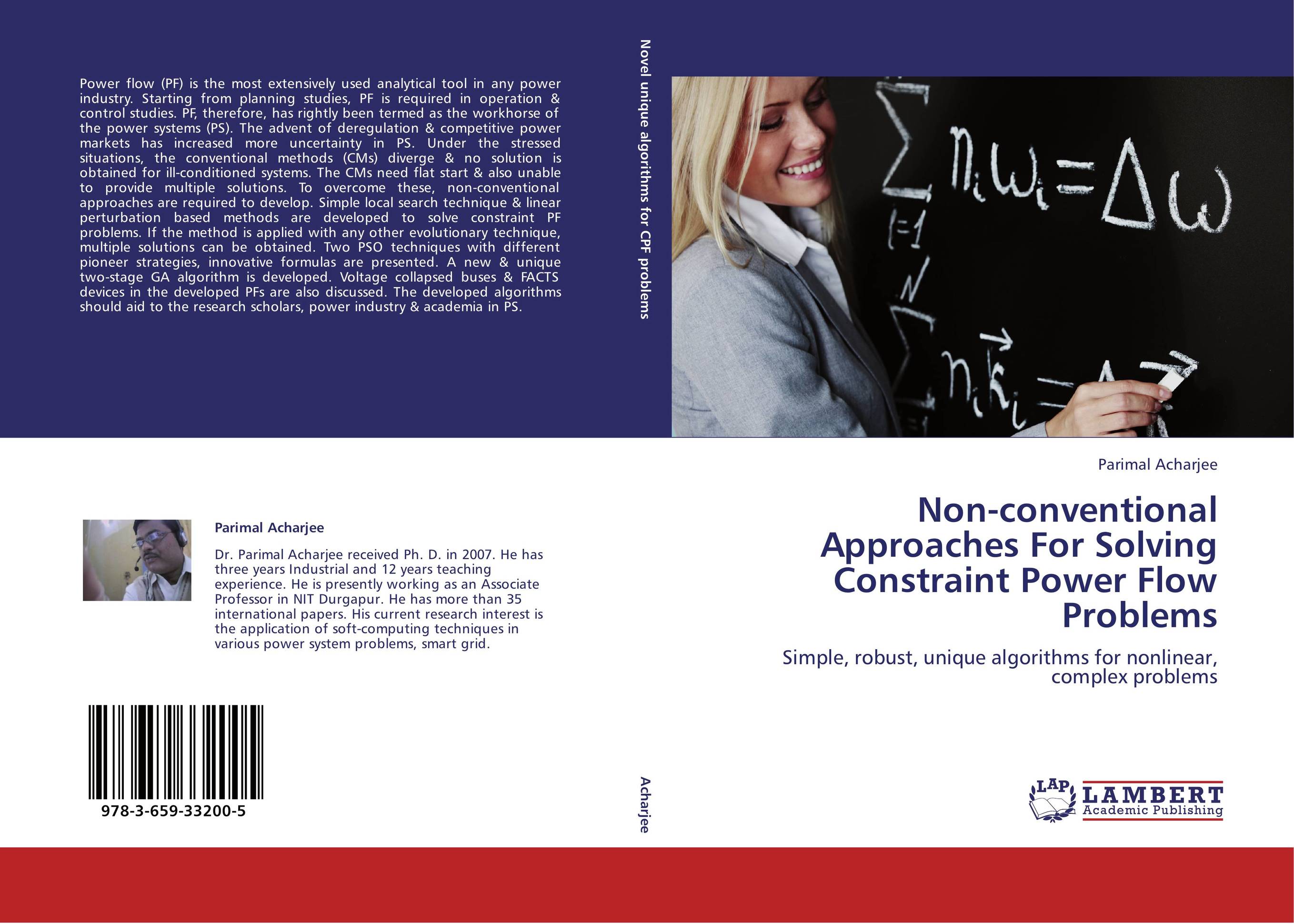| Поиск по каталогу |
|
(строгое соответствие)
|
- Профессиональная
- Научно-популярная
- Художественная
- Публицистика
- Детская
- Искусство
- Хобби, семья, дом
- Спорт
- Путеводители
- Блокноты, тетради, открытки
Non-conventional Approaches For Solving Constraint Power Flow Problems. Simple, robust, unique algorithms for nonlinear, complex problems

В наличии
| Местонахождение: Алматы | Состояние экземпляра: новый |

Бумажная
версия
версия
Автор: Parimal Acharjee
ISBN: 9783659332005
Год издания: 2013
Формат книги: 60×90/16 (145×215 мм)
Количество страниц: 204
Издательство: LAP LAMBERT Academic Publishing
Цена: 50758 тг
Положить в корзину
| Способы доставки в город Алматы * комплектация (срок до отгрузки) не более 2 рабочих дней |
| Самовывоз из города Алматы (пункты самовывоза партнёра CDEK) |
| Курьерская доставка CDEK из города Москва |
| Доставка Почтой России из города Москва |
Аннотация: Power flow (PF) is the most extensively used analytical tool in any power industry. Starting from planning studies, PF is required in operation & control studies. PF, therefore, has rightly been termed as the workhorse of the power systems (PS). The advent of deregulation & competitive power markets has increased more uncertainty in PS. Under the stressed situations, the conventional methods (CMs) diverge & no solution is obtained for ill-conditioned systems. The CMs need flat start & also unable to provide multiple solutions. To overcome these, non-conventional approaches are required to develop. Simple local search technique & linear perturbation based methods are developed to solve constraint PF problems. If the method is applied with any other evolutionary technique, multiple solutions can be obtained. Two PSO techniques with different pioneer strategies, innovative formulas are presented. A new & unique two-stage GA algorithm is developed. Voltage collapsed buses & FACTS devices in the developed PFs are also discussed. The developed algorithms should aid to the research scholars, power industry & academia in PS.
Ключевые слова: FACTS devices, evolutionary techniques, Security Constraints, Ill-conditioned Systems, Multiple solutions, Maximum Loadability



